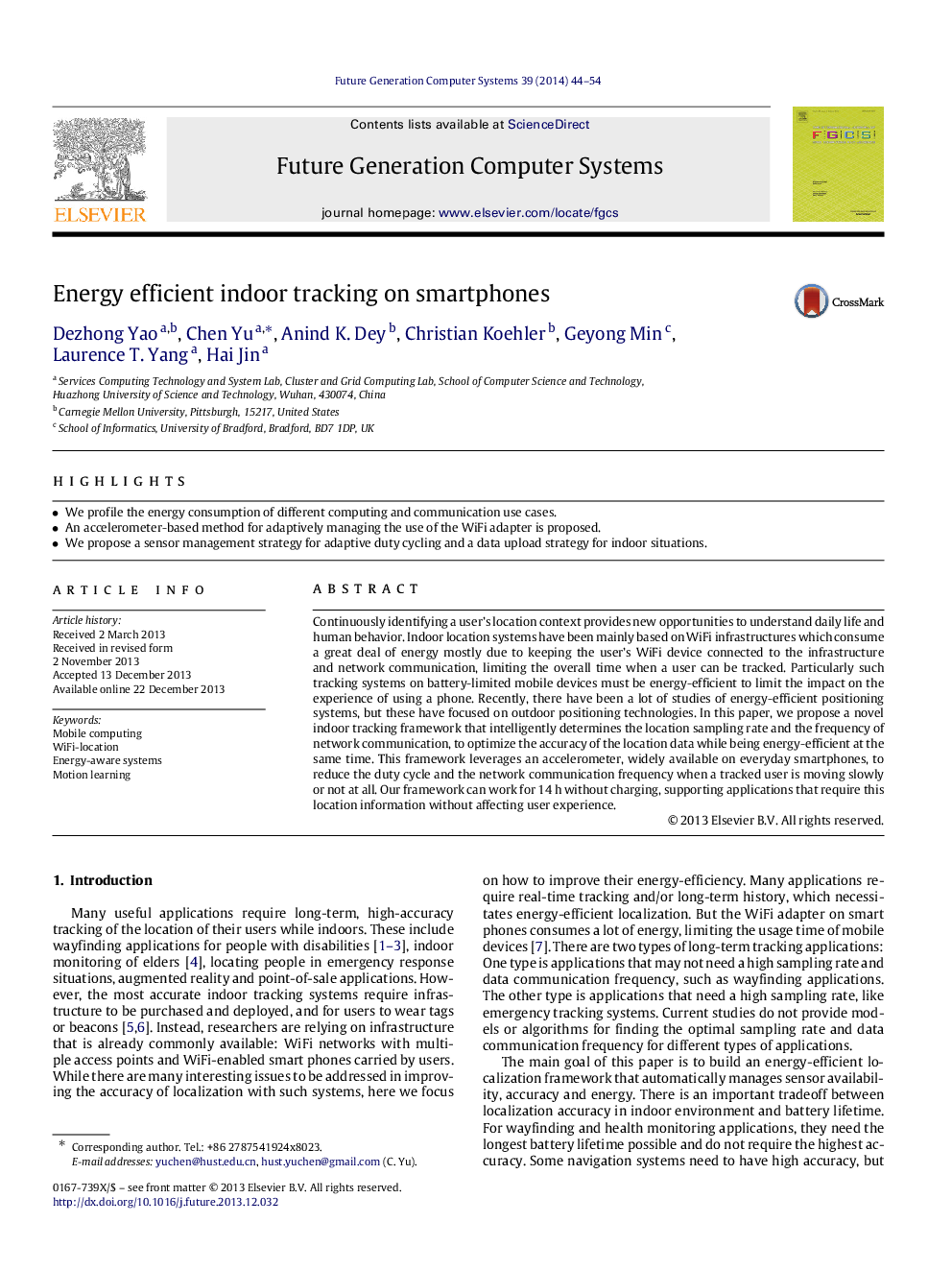| Article ID | Journal | Published Year | Pages | File Type |
|---|---|---|---|---|
| 425215 | Future Generation Computer Systems | 2014 | 11 Pages |
•We profile the energy consumption of different computing and communication use cases.•An accelerometer-based method for adaptively managing the use of the WiFi adapter is proposed.•We propose a sensor management strategy for adaptive duty cycling and a data upload strategy for indoor situations.
Continuously identifying a user’s location context provides new opportunities to understand daily life and human behavior. Indoor location systems have been mainly based on WiFi infrastructures which consume a great deal of energy mostly due to keeping the user’s WiFi device connected to the infrastructure and network communication, limiting the overall time when a user can be tracked. Particularly such tracking systems on battery-limited mobile devices must be energy-efficient to limit the impact on the experience of using a phone. Recently, there have been a lot of studies of energy-efficient positioning systems, but these have focused on outdoor positioning technologies. In this paper, we propose a novel indoor tracking framework that intelligently determines the location sampling rate and the frequency of network communication, to optimize the accuracy of the location data while being energy-efficient at the same time. This framework leverages an accelerometer, widely available on everyday smartphones, to reduce the duty cycle and the network communication frequency when a tracked user is moving slowly or not at all. Our framework can work for 14 h without charging, supporting applications that require this location information without affecting user experience.
